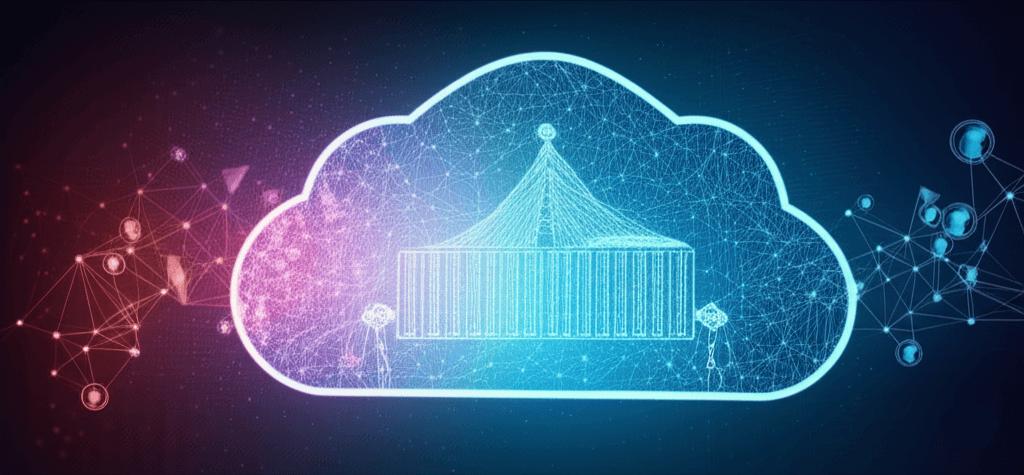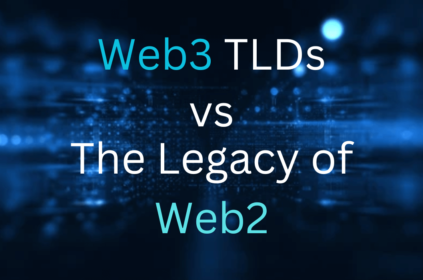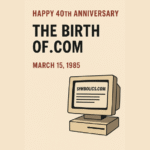Hey everyone! 👋 Ever feel like the tech landscape is evolving at a breakneck pace? Lately, the buzz around Web3 and blockchain has been practically electric, and it got me thinking about something crucial: how are these decentralized forces impacting the very backbone of the internet – cloud infrastructure? Indeed, the convergence of Web3 Blockchain Cloud Infrastructure is creating an entirely new paradigm.
For years, the cloud has been our digital haven, reliably offering scalable resources and on-demand services. Think of it as the well-organized central grid powering our online lives. But Web3 and blockchain bring a different, radical philosophy to the table – one of decentralization, user ownership, and trustless interactions. So, how do these two worlds actually collide and profoundly influence each other? Let’s dive in!
The Push for Decentralized Cloud Alternatives
One of the most direct and exciting impacts of Web3 and blockchain is the emergence of genuinely decentralized cloud storage and computing platforms. Think about it – instead of relying on a few giant corporations, Web3 envisions a vast network of individual users and smaller providers offering storage space and computing power. This is a fundamental shift in how we conceive of digital real estate.

Example: Projects like IPFS (InterPlanetary File System) offer a peer-to-peer network for storing and accessing files. Here, content is uniquely addressed by what it is, not simply where it’s located. Similarly, innovative initiatives exploring decentralized compute could allow users to rent out their idle processing power, effectively creating a global supercomputer. You can learn more about IPFS directly on their official website.
This shift isn’t about entirely replacing traditional cloud overnight, but rather offering alternatives with different trade-offs – potentially greater resilience, censorship resistance, and user control.
Blockchain as a Service (BaaS) Enhancements
Traditional cloud providers aren’t standing still either; they’re incredibly active in integrating blockchain technologies directly into their existing service offerings. Consequently, Blockchain-as-a-Service (BaaS) platforms on major clouds are becoming far more sophisticated. They now offer comprehensive tools and infrastructure to easily build and manage complex blockchain networks.
Example: Imagine a progressive supply chain company right here in Odisha using a BaaS platform on AWS or Azure to track the journey of locally sourced spices from the farm to bustling international markets. The blockchain meticulously provides an immutable and transparent record of each and every step, thus building undeniable trust and accountability throughout the entire process.

These advanced BaaS offerings dramatically simplify the complexities inherent in blockchain development and deployment. This, in turn, makes it far more accessible for enterprises to leverage the profound benefits of distributed ledger technology without the burden of managing the underlying infrastructure themselves. For more about specific BaaS offerings, consider visiting AWS Blockchain solutions.
The Interplay: Hybrid Models and Future Possibilities for Web3 Blockchain Cloud Infrastructure

It’s increasingly likely that the future will involve a highly pragmatic and integrated hybrid approach. We might see organizations leveraging the immense scalability and established maturity of traditional cloud for certain workloads. Simultaneously, they could utilize decentralized solutions for specific, critical needs like data sovereignty or absolute censorship resistance. This balanced strategy could offer the best of both worlds.
Example: A forward-thinking government agency in India might wisely use a private blockchain hosted on a secure government cloud for internal record-keeping, thereby ensuring robust security and strict compliance. Concurrently, they could explore decentralized storage solutions for less sensitive public data to significantly enhance accessibility and overall resilience. Furthermore, this hybrid approach allows for phased adoption, managing risk effectively.
Navigating Challenges and Embracing Opportunities Ahead
Of course, this rapidly evolving landscape isn’t without its significant challenges. Scalability, performance, robust governance models, and achieving clear regulatory clarity are still considerable hurdles for fully decentralized cloud solutions. Moreover, ensuring ironclad security in a truly distributed environment necessitates entirely new approaches and even more robust protocols.
However, the opportunities emerging from Web3 Blockchain Cloud Infrastructure are simply immense. Web3 and blockchain have the profound potential to foster a more user-centric, transparent, and resilient internet for everyone. By fundamentally influencing how cloud infrastructure operates, they could lead to:
- Greater data ownership and unparalleled control for individuals, shifting power back to the users.
- More competitive and incredibly diverse cloud service offerings, breaking up existing monopolies.
- The emergence of entirely new business models and innovative decentralized applications (dApps).
- Significantly enhanced security and a deeper sense of trust in all online interactions.
Final Thoughts: Riding the Wave of Change
The convergence of Web3, blockchain, and cloud infrastructure is a dynamic, fascinating, and ongoing process. While the traditional cloud isn’t going anywhere soon, the powerful principles and cutting-edge technologies of decentralization are undeniably making their profound mark. As someone based here in Bhubaneswar, witnessing these global tech shifts and considering their potential impact on our local businesses and communities is truly fascinating. It promises a future brimming with innovation.
What are your thoughts on this evolving landscape? Do you envision a future dominated by a fully decentralized cloud, or do you believe a more integrated hybrid model is the way forward for Web3 Blockchain Cloud Infrastructure? Let’s discuss in the comments below! 👇
BaaS Blockchain cloud infrastructure IPFS WEB3
Last modified: July 24, 2025








